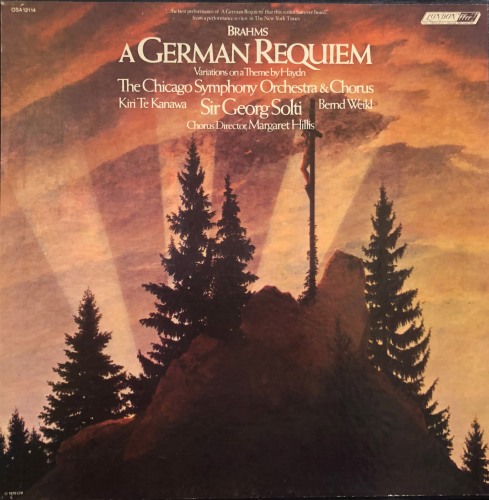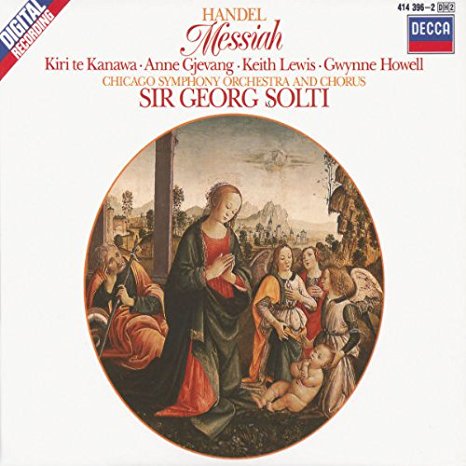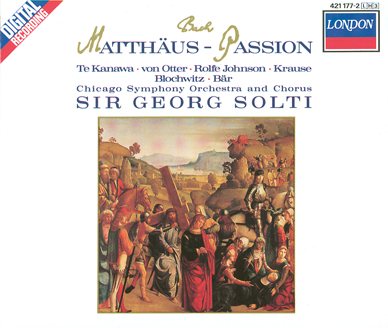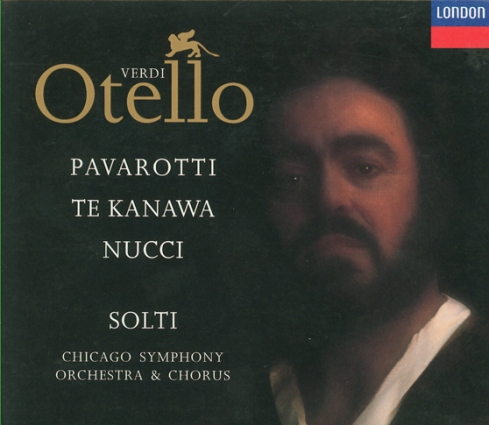You are currently browsing the tag archive for the ‘Norman Pellegrini’ tag.
____________________________________________________
In January 1986, Chicago Bears fever invaded Orchestra Hall.
According to Norman Pellegrini (longtime WFMT program director as well as producer and host of CSO radio broadcasts): “At the end of a Tchaikovsky–Liszt orchestral concert with Sir Georg Solti conducting [on January 23] . . . applause kept the maestro returning to center stage. Suddenly, members of the Chicago Symphony Chorus—wearing Bears sweatshirts—streamed onstage, and Solti led the Orchestra and Chorus in a rousing rendition of the Bears’ fight song, “Bear Down, Chicago Bears” [written by Al Hoffman under the pseudonym Jerry Downs in 1941]. The audience joined in singing, and in the two repeats of the concert, the same thing happened with even more ‘performers’ onstage. Backstage people, Chicago Symphony Orchestra staff, and others—including Lady Valerie Solti—crowded in to sing along.”
On January 26, 1986, the Bears beat the New England Patriots in Super Bowl XX, 46–10.
Solti and the Orchestra recorded the fight song—along with The Star-Spangled Banner (also with the Chorus) and John Philip Sousa’s The Stars and Stripes Forever—for London Records on January 27. It was released a few months later on a tremendously popular album in conjunction with the annual Marathon fundraiser. A live version from January 23 also was released on Chicago Symphony Chorus: A Fortieth Anniversary Celebration in the spring of 1998, in conjunction with the annual Radiothon fundraiser.
This article previously appeared here and also appears here.
Deutsche Grammophon has released—for the first time on CD—Vladimir Horowitz‘s final recital in Orchestra Hall from October 26, 1986. The concert originally had been broadcast on WFMT (Mitchell Heller was the broadcast-recording engineer and producer). For the CD release, Jon Samuels was producer and Matthew Sohn the restoration engineer.
The two-CD set also includes two interviews, both of which were excerpted for the 1986 broadcast; on the release, they are included in their entirety. The first is with Chicago Tribune music critic Thomas Willis from October 30, 1974, and the second with WFMT’s Norman Pellegrini from October 25, 1986 (the day before the recital). Both interviews also can be heard here.

Horowitz’s program for October 26, 1986; Schumann’s Träumerei and Moszkowski’s Étincelles were performed as encores. The complete program is here.
“Those who witnessed past Horowitz recitals might have known what to expect: the famously idiosyncratic phrasings, the errant tempos, the pedal effects that only he can achieve, the bursts of titanic virtuosity,” wrote John von Rhein in the Chicago Tribune on October 27, 1986. “Through it all Horowitz wore a gentle smile, looking rather childlike as he waved to the crowd, clapped his hands and gave little shrugs whenever his keyboard conjuring drew the wonted response. One trusts that the effect was as potent for the thousands who were listening to WFMT’s live radio broadcast as it was for the crowd who packed the hall and stage seats.”
“But there is only one Horowitz, a miraculous, many-faceted artist who delights in surprising us and revealing the plurality of things that enter into his artistry,” added Robert C. Marsh in the Chicago Sun-Times. “Have no doubt, he is still, I am sure, the greatest virtuoso of all. . . . Listening to Horowitz is listening to history. He takes us back to a musical world that, except for himself, is largely gone. I was pleased so many of his listeners were young people. Opportunities for time traveling are always rare. We should savor them.” Both reviews are available here.
In the 1986 interview, the pianist concluded: “I think Chicago was my first success in America . . . Chicago is special for me. I like the people, the whole, everything.”
____________________________________________________
In January 1986, Chicago Bears fever invaded Orchestra Hall.
According to Norman Pellegrini (longtime producer and host of CSO radio broadcasts): “At the end of a Tchaikovsky–Liszt orchestral concert with Sir Georg Solti conducting [on January 23] . . . applause kept the maestro returning to center stage. Suddenly, members of the Chicago Symphony Chorus—wearing Bears sweatshirts—streamed onstage, and Solti led the Orchestra and Chorus in a rousing rendition of the Bears’ fight song, Bear Down, Chicago Bears [written by Al Hoffman under the pseudonym Jerry Downs in 1941]. The audience joined in singing, and in the two repeats of the concert, the same thing happened with even more “performers” onstage. Backstage people, Chicago Symphony Orchestra staff, and others—including Lady Valerie Solti—crowded in to sing along . . .”
On January 26, 1986, the Bears beat the New England Patriots in Super Bowl XX, 46-10.
Solti and the Orchestra recorded the fight song—along with The Star-Spangled Banner (also with the Chorus) and John Philip Sousa’s The Stars and Stripes Forever—for London Records on January 27. It was released a few months later on a tremendously popular album in conjunction with the annual Marathon fundraiser. A live version from January 23 was also released on Chicago Symphony Chorus: A Fortieth Anniversary Celebration in the spring of 1998, in conjunction with the annual Radiothon fundraiser.
The program for those concerts was as follows:
January 23, 24, and 26, 1986
TCHAIKOVSKY Romeo and Juliet
LISZT Piano Concerto No. 1 in E-flat Major
André Watts, piano
LISZT Totentanz
André Watts, piano
TCHAIKOVSKY Suite from The Nutcracker
Advance notice of the event was announced in the Chicago Tribune (see below); available reviews of the concert are here and here.


























